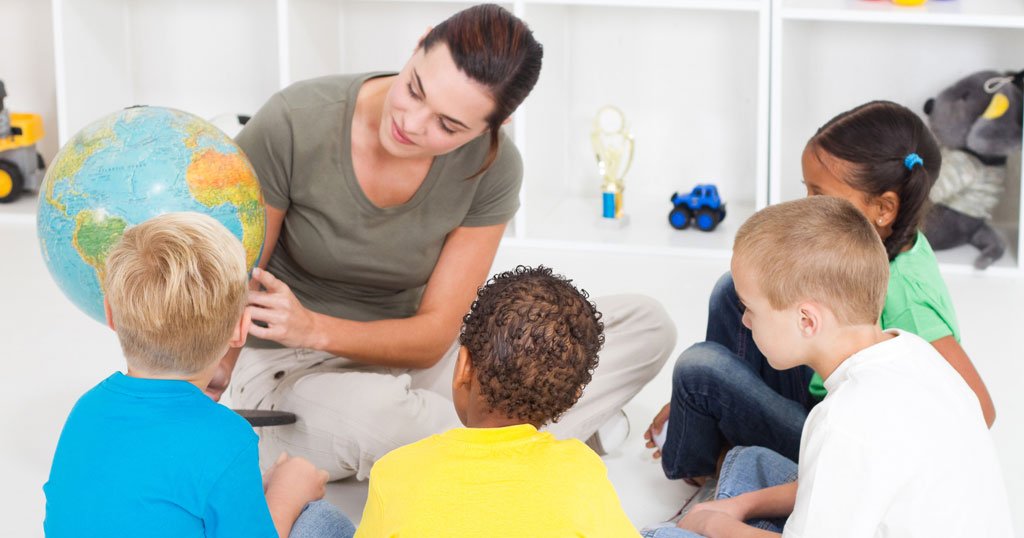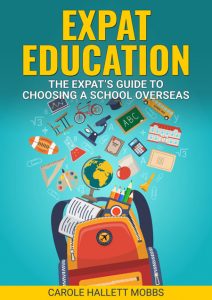Choosing a nursery, kindergarten or pre-school abroad
If you are moving abroad with toddlers / pre-school-age children, you’ll find that helping them adapt is much simpler than moving with older children and teenagers. And, as a bonus, it’s much easier for you to meet new friends when you have little ones. They are great ice-breakers and you will meet loads of new people when you’re out and about with them.
Finding a kindergarten overseas for your children still has its challenges, but children under the age of five can adapt to new environments much more easily than older children. Introducing them to a pre-school at an early age also gives them a chance to enter the local education system within the new country seamlessly. Social and education choices made in the early years are as crucial as those made at primary and secondary level. The foundations of independence, confidence and the willingness to learn are installed in these years
Different kinds of kindergarten
In many countries, children don’t start compulsory education until they are six or seven years old, and kindergartens are usually very much play-based. For a five or six year old moving to a country like this from the UK, this can be a huge step back for them. They may have felt ‘grown up’ because they have started formal education already, and then are expected to go back into nursery. Take note of this and try to work around it somehow.
Although kindergarten, nursery and pre-school varies around the world, it is worth noting that different countries will have their own systems and legislation, so you should do your own personal research too.
In Dubai, for example, there are a vast number of privately owned nurseries, with a small number of public nurseries. It is estimated that 90% of all children in Dubai are enrolled in a nursery, with others being looked after by domestic nannies or helpers. Different backgrounds and societal preferences may be a factor in this. Nurseries and kindergartens will allow your children the social interaction that a private nanny or maid cannot give. Emirati families tend not to enrol children in nurseries as frequently as expats, so you may find that your children won’t have the opportunity to make local friends at this early age.
In China, public schools are obliged by law to accept the children of all foreigners legally residing in the country, even though international schools there are not permitted to admit children with Chinese passports as pupils.
How to choose a pre-school or kindergarten
It is important to ask for a viewing at the nursery or kindergarten in the area you’re moving to. Ask as many questions as possible and find out what the structure of the daily activities of the children. And go with your gut feeling.
- Visit the premises, and meet the staff, rather than relying on brochures or reviews.
- Try to keep the nursery local – or within walking distance – as the fresh air and calming morning routine will increase your child’s concentration levels for the rest of the day.
- Check outdoor provision to discover how many hours a day nurseries provide children with the space and opportunity to develop their vital gross motor skills.
- Asking about bilingual or multi-lingual support, where the national language and your family’s native language differ.
Talk to other parents and ask advice – you’ll meet them when you take your little ones to a recreation ground, park, shops and so on. Don’t be shy! It’s really important for you to feel happy about where your child will be spending time.
You may prefer to immerse your child into a local language pre-school or nursery. There are numerous benefits to this.
Benefits of choosing a local language kindergarten
Language Acquisition
In these early, formative years enrolling your little one in a local, monolingual nursery can be hugely beneficial for their language skills.
Young children learn new languages very easily, as their acquisition skills are developing rapidly. It has been noted by researchers and psychologists that it becomes harder to learn languages as you get older, so your young children will have little trouble picking up the local language.
In countries with a large expatriate community, your child is likely that they will pick up words from more than one other language! You may even find that your children become completely bilingual relatively quickly.
International schools and kindergartens can be frequently found in countries with large expat communities, where they conduct their care and teaching in English. These may be preferable to you, especially if you know you’ll be moving on again in a couple of years or so. But if you’d like your child to be truly integrated, allowing them the opportunity to learn a second language will give them a significant advantage as they grow older in their new country.
And some place may offer bilingual kindergartens which gives you and your child the best of both worlds!
Creating a home base and helping you too
Local kindergartens are a golden opportunity for children to make local friends they can grow up with and adapt to their new environment without a hitch. For parents, meeting potential friends through the community of parents will benefit you too. Having this base for the future will help your children and you. Make the effort to speak to friends at the school gates or at PTA (or its equivalent) meetings.
You could even set up regular playdates so you can meet new friends in your area. Alternatively, start a group for parents to meet up for trips and events – this worked wonderfully well for me in Japan. Not only will this give your children chance to make friends for life, but it will help you settle in too. Shared experience often brings people together the best, and engaging with other parents (whether nationals of your new country or fellow expats) will mean that you settle into your new environment more quickly.
All parents have different goals for their children’s early education. If you want an early education similar to what you’ll find in your home country, speak to your fellow expats via forums and Facebook to find out their recommendations for education.
Staying at home?
Alternatively, you could look after your child at home rather than find a nursery. This only really suits expat families which have one non-working parent. And be aware that home-schooling is illegal in some countries, but in most places it is fine to provide very early education from home. In an area where the nurseries aren’t suitable or an isolated location, this can often be the best option.
However, you should also consider your child’s social skills and want to make friends their own age. If your child is not going to nursery or kindergarten, ensure that they are meeting other young children or partaking in early year’s activity groups. Movement and music are especially beneficial to children of pre-school age and you should be able to find baby and toddler groups wherever in the world you are.
The most important thing to remember when relocating is that your children will need encouragement and support from you. Research your options thoroughly, and consider what will benefit your child as well as your domestic and work situation. Any doubts, and if your child is not getting on well in their new nursery or kindergarten, it’s worth finding another option if they do not settle after a few months.
My book on choosing the right school for YOUR child overseas
Choosing the right school for your child is one of the hardest decisions you’ll make as an expat parent when moving abroad. There are many education options around for expats, and so much depends on your individual family set-up and child that there is no ‘one-school-fits-all’ solution.
Each child is different and each country’s school system is different, even within the ‘generic’ international schools. Also, families differ in their requirements and aspirations, and even relocations vary greatly. What worked well for you all in one country won’t necessarily be replicated in your next move.
It’s easy to get very stressed at this point. Don’t panic! I’ve put together this book to help you kick-start your search for the best type of school for your child.
Available on your local Amazon
To get instant access to the key points you need to know right now, check out my abridged version eBook here




I’m glad that you mention how different countries have their own systems and legislation, making it important to do your own personal research. Looking online would probably be a great way to learn more about how kindergarten is done in your countries as well as research the different options near your home. Once you’ve looked online, it could help to visit the kindergarten in person so that you can meet the teachers and see how they interact with the children in order to determine if they’re a good choice for your child.